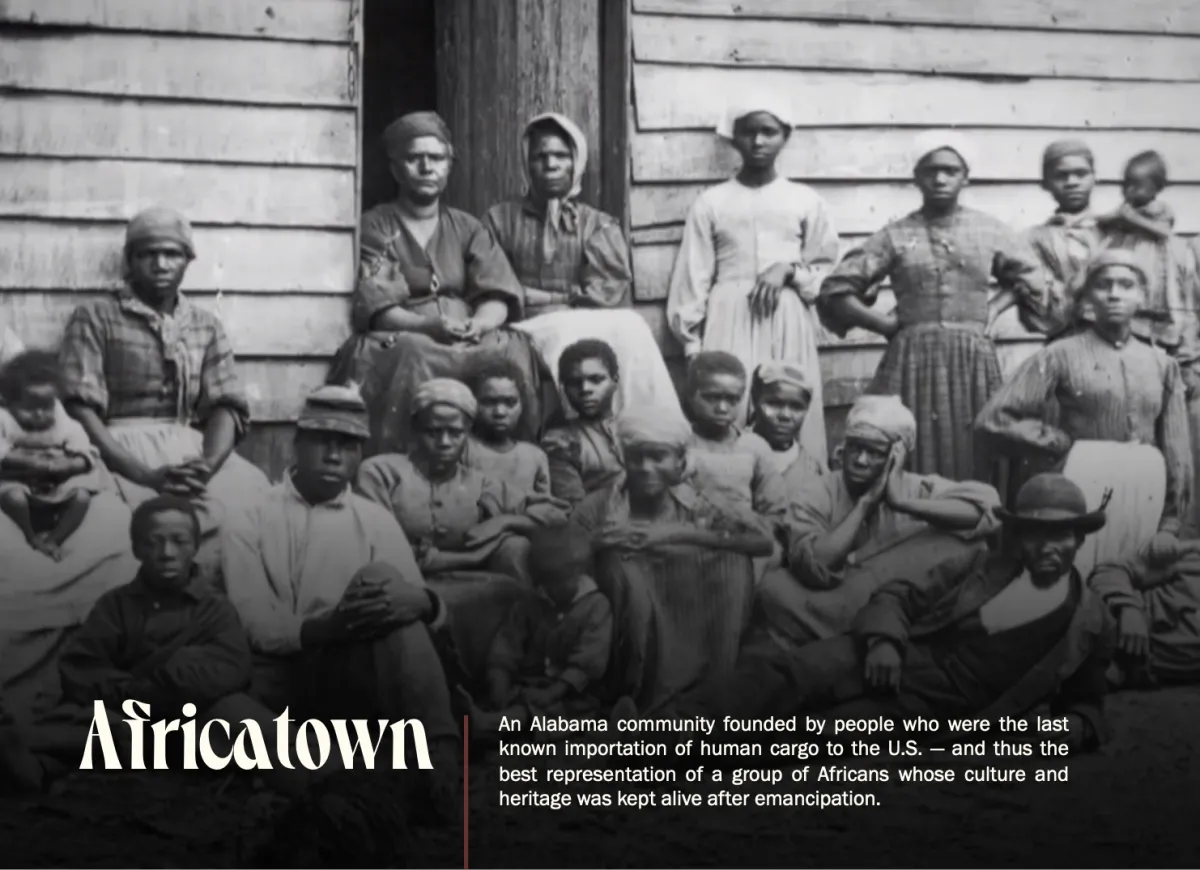
-
Michelle Major, Director/Producer
-
Sam Pollard, Producer

About the Project
This documentary tells the transformative story of a unique community called Africatown. Founded in 1860 by people who were the last known importation of human cargo into the US from Africa for the purpose of slavery, their descendants retrace their past to forge a triumphant future by reclaiming, rebuilding, and restoring a national treasure, their town.
The story of Africatown takes place in an Alabama community with one of the most important American stories of our time. It’s a story of the triumph of a people despite the sordid past of a nation, and a microcosm reflecting a nation still struggling to accept the truth of its past and present.
Africatown gained national attention in 2018 with a significant, historical discovery unearthed at the bottom of the Mobile-Tensaw River Delta. Found burned and buried was the Clotilda, the boat that, in 1860, illegally transported 110 Africans on the last known voyage from freedom in Africa to bondage in America 52 years after international slave trade was banned. The ship’s owner, Timothy Meaher, a powerful member of the Mobile community, destroyed evidence of the ship and declared the Clotilda a myth. Meaher was tried and acquitted for his acts, echoing the way truth and justice have continued to be denied African descendants for generations.
Clotilda survivors spent 5 years enslaved. After emancipation, and without funds to return home to West Africa, they pooled resources to buy land from Meaher and set up a thriving, autonomous community that allowed them to maintain their traditions and culture. They established a school that provided their children an excellent education and built a prosperous town. By the early/mid- 1900s, Africatown grew to be one of the most flourishing Black towns in the US, a remarkable achievement by a people subjected to the devastating trauma of enslavement. Today, it’s one of only 30 all-Black communities remaining in the country, the only one founded by Africans, and the only one with its distinctive legacy.
However, despite the knowledge and evidence proving who they were, an attempt to erase the story began almost immediately after the town’s founding and has persisted until today as claims that the Clotilda was a fabrication persisted. This lie was weaponized to absolve those responsible for the enslavement of Africatown’s founders and conceal the ongoing graft against the town.
The discovery of the Clotilda has confirmed oral history of “the last slave ship” and calls for a reckoning for the miscarriage of justice in this once forgotten town.
This documentary follows the community’s present-day attempt to keep their town and legacy alive so their history, hometown heritage site, and ancestry will never again be forgotten, harmed, or controlled by outsiders. As they share their story, we revisit the reverberations of slavery through a radically different lens. We see the enormous impact either knowing, or being denied the knowledge of one’s history has on our lives.
The stakes are high as politicians, descendants of former slave owners and real estate developers see an opportunity to enrich themselves at the expense of Africatown’s residents. While efforts are made to direct funds toward gutting the town for gentrification and commercialization, townspeople fight to take back and preserve their land and history.
This story represents the historical and modern-day impact of the convergence of racism and systemic coercive control. We watch as the people of Africatown band together to resist graft and forge paths toward true and lasting autonomy.